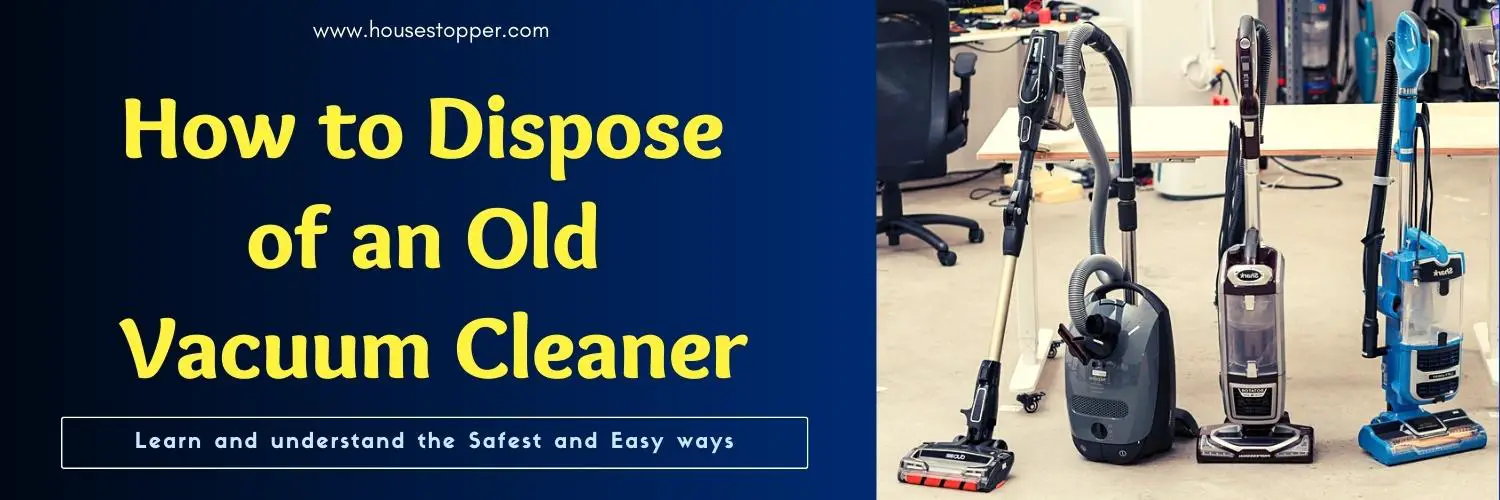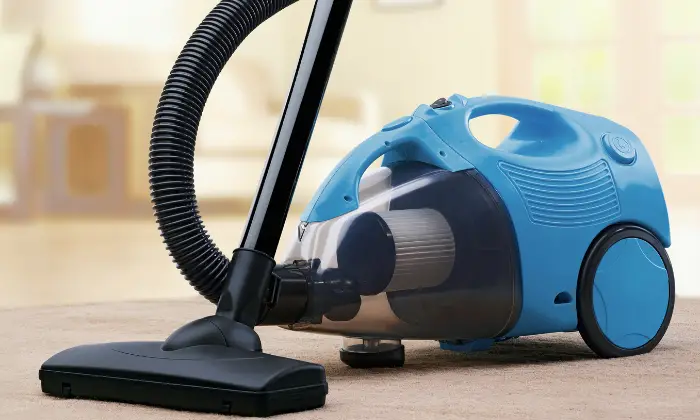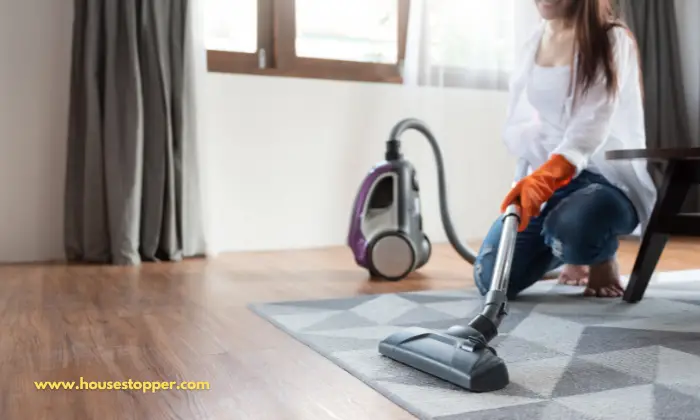Vacuum cleaners can be a massive pain behind, not to mention the mess they leave back. If you’re ever feeling overwhelmed with how to dispose of a vacuum cleaner properly, this blog is for you.
In this post, we’ll outline the four main reasons to dispose of a vacuum cleaner and how to do it safely and effectively. We’ve got you covered, from properly dismantling and disposing of a vacuum cleaner to following simple steps.
So don’t wait to get started today on your way to vacuum cleaner disposal success!

The four main reasons to dispose of a vacuum cleaner:
- The vacuum cleaner is no longer helpful: Maybe you’ve had your vacuum cleaner for a while, and it’s just not holding up anymore – in that case, the disposal may be the best option. However, if the vacuum cleaner is still operational but experiencing issues (like not picking up debris), you might want to try fixing it before throwing it out.
- You’re replacing your vacuum cleaner: This one’s pretty self-explanatory. If you’re getting a new vacuum cleaner, it’s probably because your old one is finally dying. In this case, disposal isn’t necessary – just recycle the old one!
- The vacuum cleaner is too big to take apart and clean: This can be a tricky situation – if the vacuum cleaner doesn’t have any parts that can easily be detached (like the filter), it might be tough to clean and dispose of. In this case, you might want to consider donating or recycling the vacuum cleaner instead.
- The vacuum cleaner is too small to take apart and clean: If the vacuum can’t dismantle it for some reason (like it’s Sears Roebuck, circa 2004), it might just have to go in the trash. Again – garbage disposal may be your best bet here!
Sometimes we sell the old ones and buy new technology. Like any other trending products, we purchase new kinds of vacuums for our homes. However, throwing away an old vacuum in this case is unnecessary, but it can have a good effect.
There are some frugal ways received by these vacuums regardless they are still using the design more than five years ago which do not include changing the bag anymore even if there was changed the filter – sometimes we sell the bag and change to a new one.
How to properly dismantle and dispose of a vacuum cleaner

It’s time to say goodbye to your old and used vacuum cleaner! After dismantling it correctly, wrap up all the pieces carefully before transporting them away.
Here are the four steps to adequately dismantle a vacuum cleaner: bag removal, filter cleaning, hose, cord removal, and powerhead removal. Each step needs to be done properly, and everything needs to be kept in good condition.
Make sure to properly recycle all the materials used in the vacuum cleaners breakdown, and enjoy your new clean home!
Follow simple steps (How to Dispose of a vacuum cleaner)
Disposing of appliances safely and correctly is essential to avoid potential health risks. Avoid landfills if possible, and follow these simple steps when disposing of a vacuum cleaner:
– Disconnect the vacuum cleaner from the power supply
– Remove the dustbin and all the recognizable parts, including the bag and filters
– Put the vacuum cleaner in a sturdy container, such as a recycling bin, and cover it with a lid or blanket
– Take the vacuum cleaner to your local recycling center
Following by previous steps, now you are ready to dispose of the vacuum cleaner by the below steps –
1. Sell Its Parts:
It is not possible to sell the entire vacuum cleaner. However, you can sell its parts.
For instance, if you want to make money from your old vacuum cleaner, take it to a scrapyard and sell its parts. You could also sell its filters and bags to a recycling center.
2. Take It to the Nearest Electronics Store:
Electronic stores sell components to repair your vacuum cleaner. They also sell replacement parts for vacuum cleaners. You can take your broken vacuum cleaner to an electronic store and have it repaired or replaced.
This is a great way of disposing of your old vacuum cleaner safely and responsibly.
3. Drop It Off at a Recycling Center:
There are many different recycling centers across the country. They take all sorts of waste, including broken-down vacuum cleaners. You can drop off your old vacuum cleaner at any one of these centers, and they will recycle it for you. They charge a modest fee for this service, but recycling your old vacuum cleaner safely is worth it.
4. Give It to a Scrapyard:
There are many scrap yards in the country. You may look for them online or in a local business directory. Most of these companies will pay you for your old vacuum cleaner and its parts. The best thing about these scrapyards is that they take all kinds of broken-down appliances, including vacuum cleaners.
How to Dispose of a running Vacuum Cleaner

If you have an operational vacuum cleaner, you can still recycle it. The recycling center will most likely be able to recycle the body housing and the motor. You can also sell these parts separately.
You might need to dismantle your vacuum cleaner to recycle its parts. Be sure to take pictures of the individual pieces so you can reassemble them correctly when you sell them.
- Resell it to the Facebook marketplace and Facebook groups: You can also resell your old vacuum cleaner on Facebook marketplaces and Facebook groups. You’ll need to research the specific requirements for each marketplace before selling your vacuum cleaner. Don’t worry it’s so easy to sell.
- Sell or Give It Away Online: You can also sell or give your vacuum cleaner away online. This is the simplest way to get rid of your old vacuum cleaner, but you’ll need to factor in shipping and handling fees. Several websites like eBay, Craigslist, etc. This kind of website allows you to find new homes for unwanted appliances. Just be sure to research the specific requirements for each website before selling your vacuum cleaner. We have a full-length article about: Where Can I Sell My Vacuum cleaner? – A Comprehensive Resell Guide.
- Donate to Local Shelters or Donation Centers: You can also donate your old vacuum cleaner to local shelters or donation centers. This is a great way to get rid of your old appliance without worrying about shipping and handling fees.
- Swap It at a Swapping Event: If you live in a community with a swapping event, you can swap your old vacuum cleaner for a new one. This is the safest way to get rid of your old vacuum cleaner and avoid getting charged shipping and handling fees.
Why Should You Recycle Old Vacuum Cleaner?
Reusing your old vacuum cleaner instead of throwing it out can be a responsible and environmentally-friendly choice. Here are four reasons below – why you should recycle your old vacuum cleaner:
- It Can Help Save Energy: By recycling your old vacuum cleaner, you’re helping to save energy resources. Every time a new vacuum is bought, the manufacturing process uses energy and materials that could have been used to refurbish an older model. Recycling your old vacuum cleaner can help reduce the number of new vacuum cleaners produced each year.
- It Can Help Protect the Environment: Recycling your old vacuum cleaner helps protect the environment by reducing the amount of waste created in production and disposal. By recycling your old vacuum cleaner, you’re helping to reduce pollutants released into our air and water resources.
- It Can Help Save Money: By recycling your old vacuum cleaner, you’re reducing the cost of disposal and helping to save money while helping to protect the environment.
- It Can Help Reduce Stress: Since it takes less time than landfill disposal of a good machine, recycling your old vacuum cleaner may help you relax since it requires less effort.
Frequently Asked Questions:
What should I do with my old vacuum cleaner?
Dispose of a vacuum cleaner by recycling it or giving it away to a charity.
What are some safe and easy ways to dispose of a vacuum cleaner?
There are a few safe and easy ways to dispose of a vacuum cleaner. Some people recommend recycling the machine, while others discard it in a secure location away from children and pets.
What are some common vacuum cleaner problems, and how to solve them?
Some common vacuum cleaner problems and how to solve them include:
– Blocked suction can occur if dirt, dust, or debris has built up inside the vacuum cleaner’s motor or hose. To fix this, remove all the waste using a brush or can of compressed air, then re-attach the vacuum cleaner’s hose and try the suction again.
– Low vacuum – this can be caused by a clogged filter, a broken belt, or a blockage in one of the vacuum cleaners’ filters. To fix this, manually clean all the filters using a shop vacuum cleaner or power vacuum cleaner with a crevice tool.
– High-pitched noise – an empty air tank or worn-out bearings often cause this. To fix this, replace the air tank or bearings.
What are the most common mistakes people make when disposing of a vacuum cleaner?
The most common mistake people make when disposing of a vacuum cleaner is not properly bagging it.
How can you clean a vacuum cleaner without chemicals?
Using hot water and a cleaner bag, you can clean a vacuum cleaner without chemicals.
What should you do if a vacuum cleaner is leaking liquid?
Clean up the mess immediately if you notice liquid leaking from the vacuum cleaner. If the vacuum cleaner is old, it may not be able to hold up to the wear and tear of a leak, so it might need to be replaced. You can check the manufacturer’s warranty to determine if your vacuum cleaner needs to be replaced.
What are the most regular ways to dispose of a vacuum cleaner?
Recycling a vacuum cleaner or disposing of it in a landfill is the most common way to dispose of one.
How can you protect your family and home from harmful pollutants?
The Environmental Protection Agency (EPA) offers a variety of tips for protecting your family and home from harmful pollutants. Including: Keeping your house clean and free of old appliances and furniture, using low-emitting appliances, fuels, and cleaners, checking air quality index levels in your community, and participating in local recycling programs.
How do you safely empty the dust bin and motor?
You can safely empty the dust bin and motor by using the Quick Clean feature on your vacuum cleaner.
Is there any way to recycle my old vacuum cleaner or get some money back from it?
The Environmental Protection Agency (EPA) doesn’t recommend recycling vacuum cleaners. The motors and other parts can contain hazardous materials that could harm the recycling process. Additionally, most vacuum cleaners are not designed to be recycled, and the components may not fit together correctly.
Why are people so obsessed with robot vacuums?
A “Journal of Consumer Research” study found that people are more likely to rate a robot vacuum cleaner favorably if it has a humanoid appearance. This is likely because people view robots as more reliable and efficient than traditional vacuum cleaners.
How do recycling things affect us?
Recycling affects the environment by reducing the number of materials that need to be produced and transported. Disposing of a vacuum cleaner in a landfill can release harmful pollutants into the atmosphere, including lead, mercury, and benzene. Furthermore, inappropriate disposal practices can lead to groundwater contamination.
If you consider disposing of your vacuum cleaner in a landfill, don’t hesitate to contact your local waste management agency for more information.
Conclusion: Its Easy and straightforward to dispose
Vacuum cleaners can be a huge nuisance in your home, and over time they can start to cause damage. To avoid any potential damage or injury, it is crucial to dismantle and dispose of your vacuum cleaner properly.
We have outlined the primary steps you need to take to safely and effectively. So make sure to follow them, and vacuum cleaner disposal will be a breeze!





